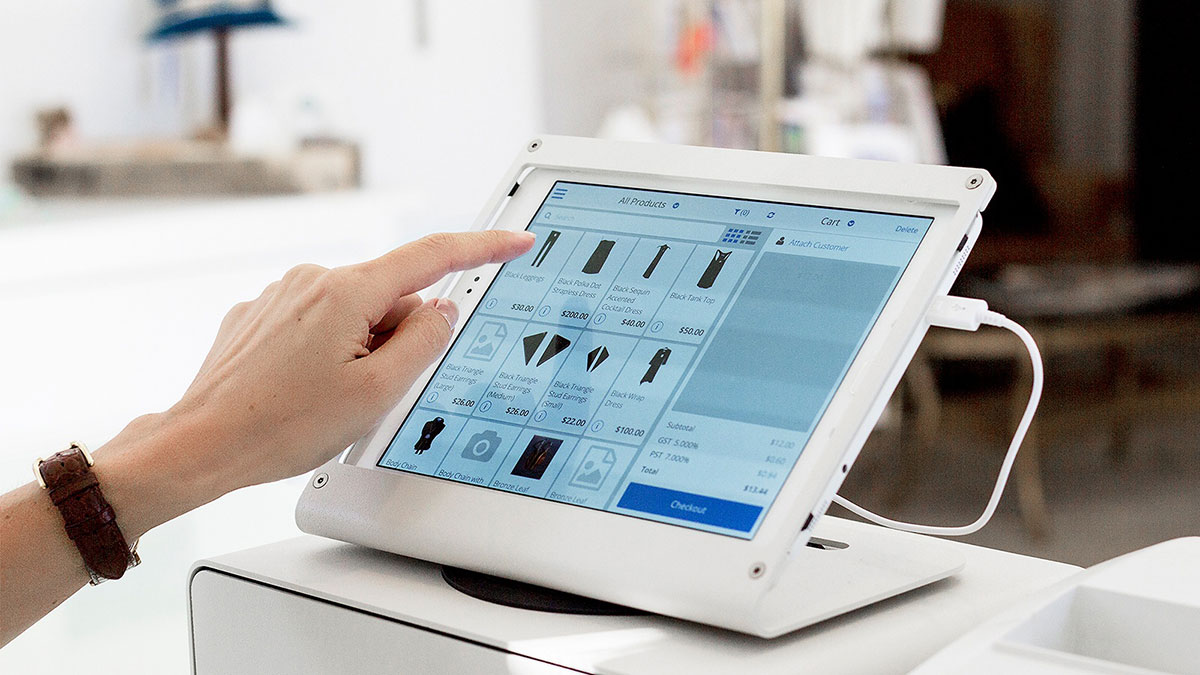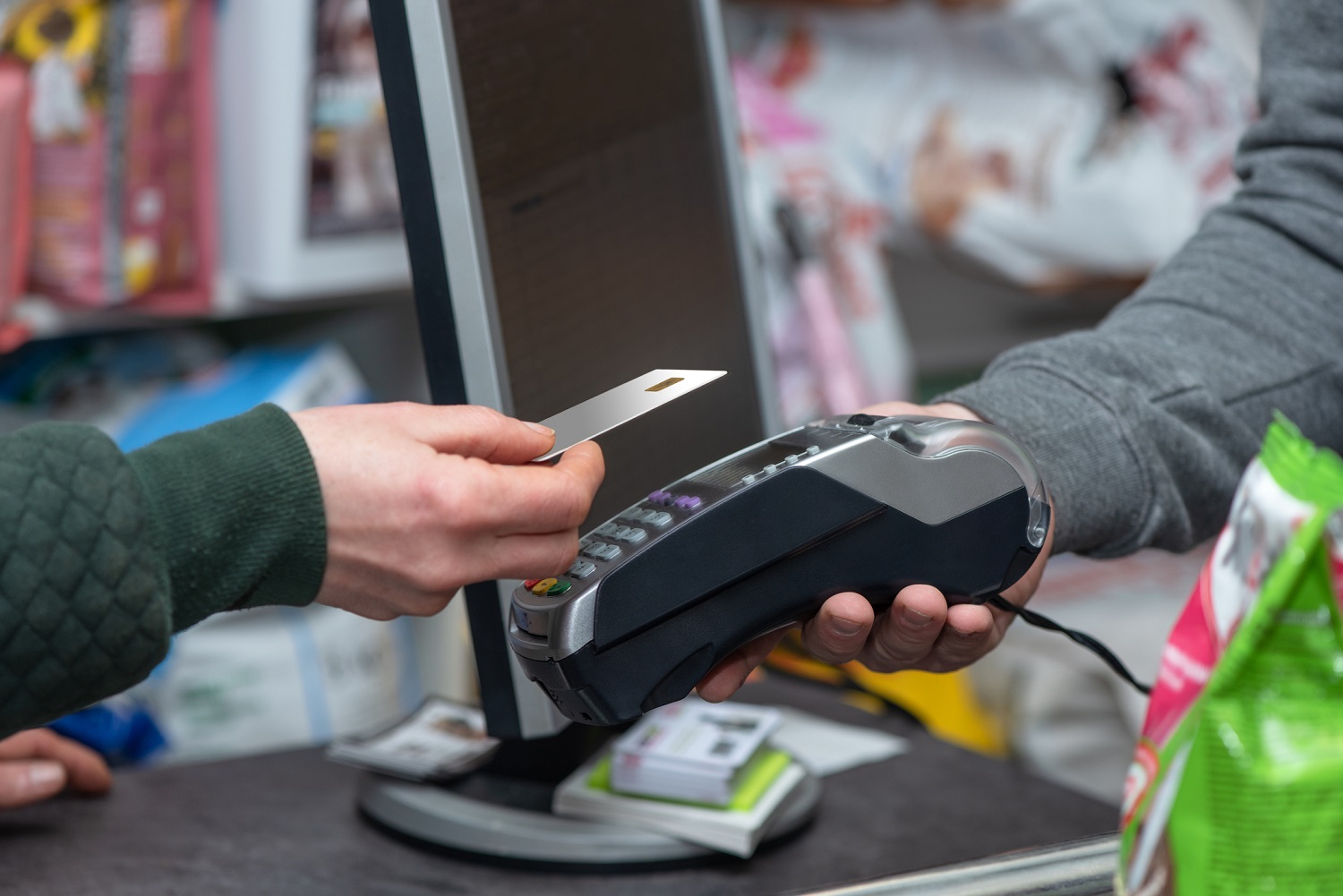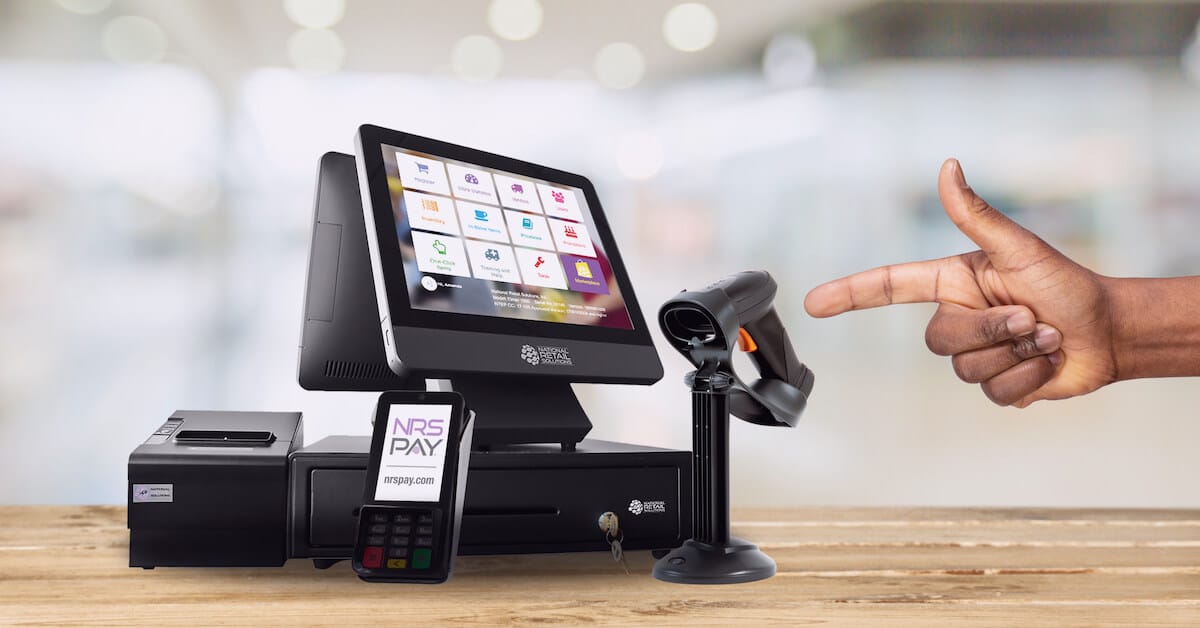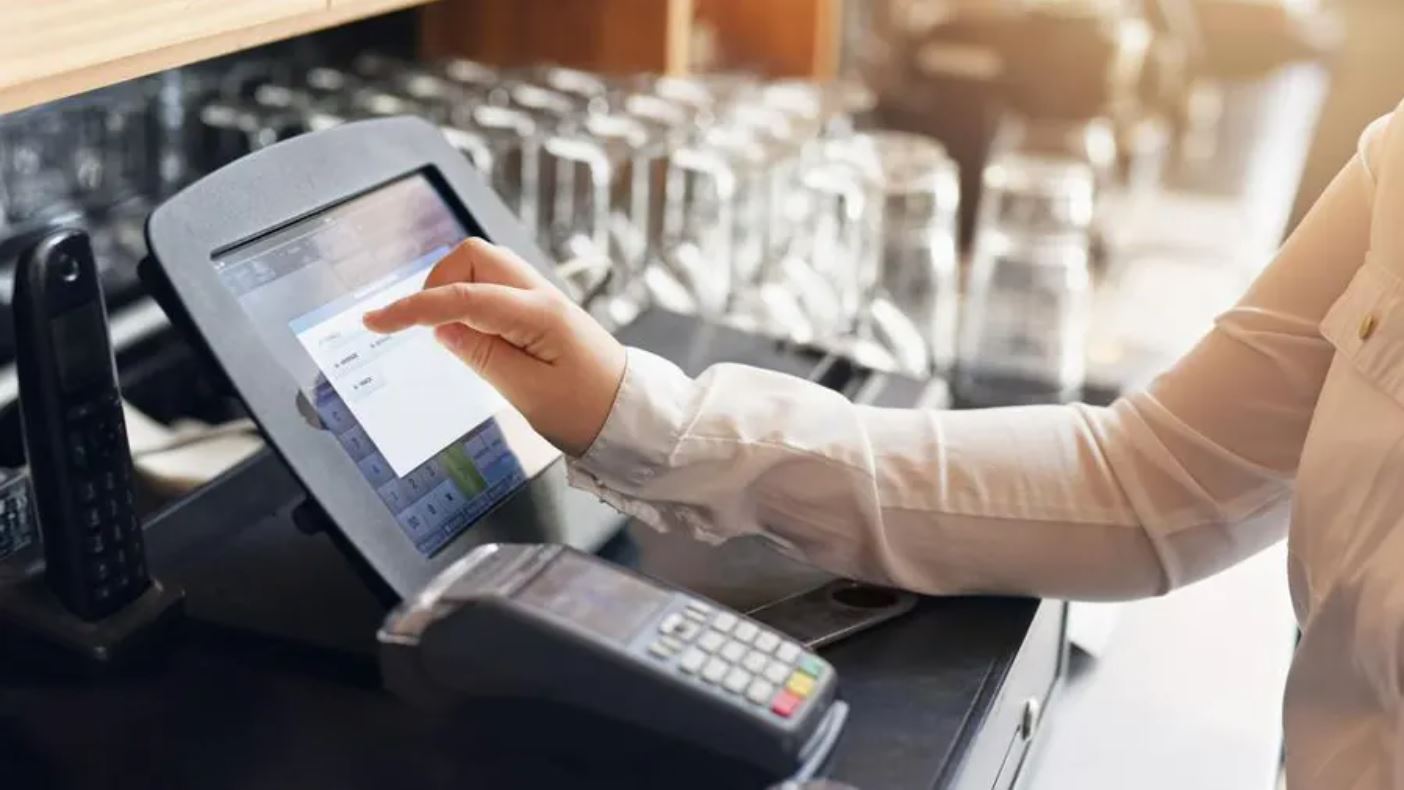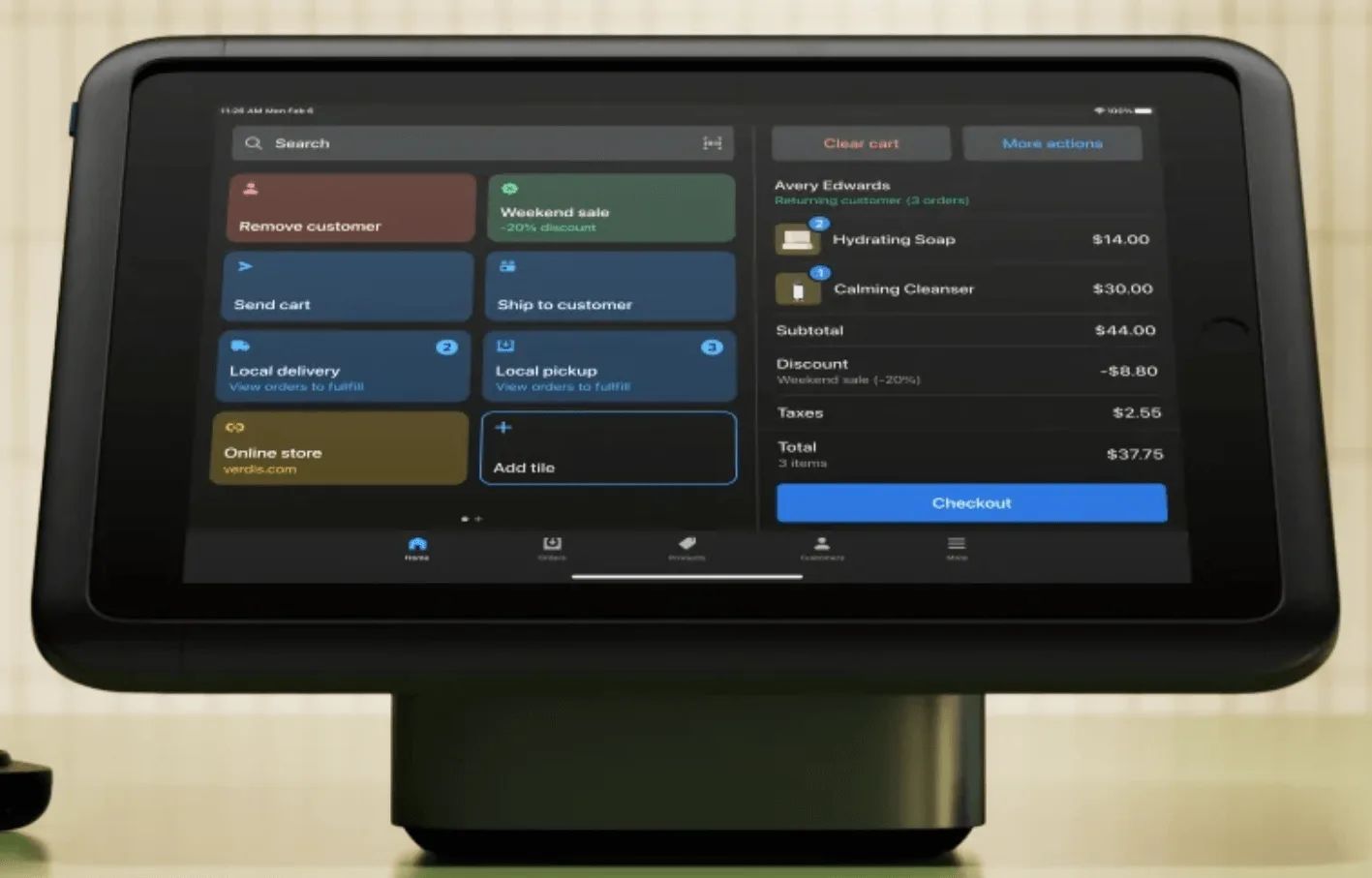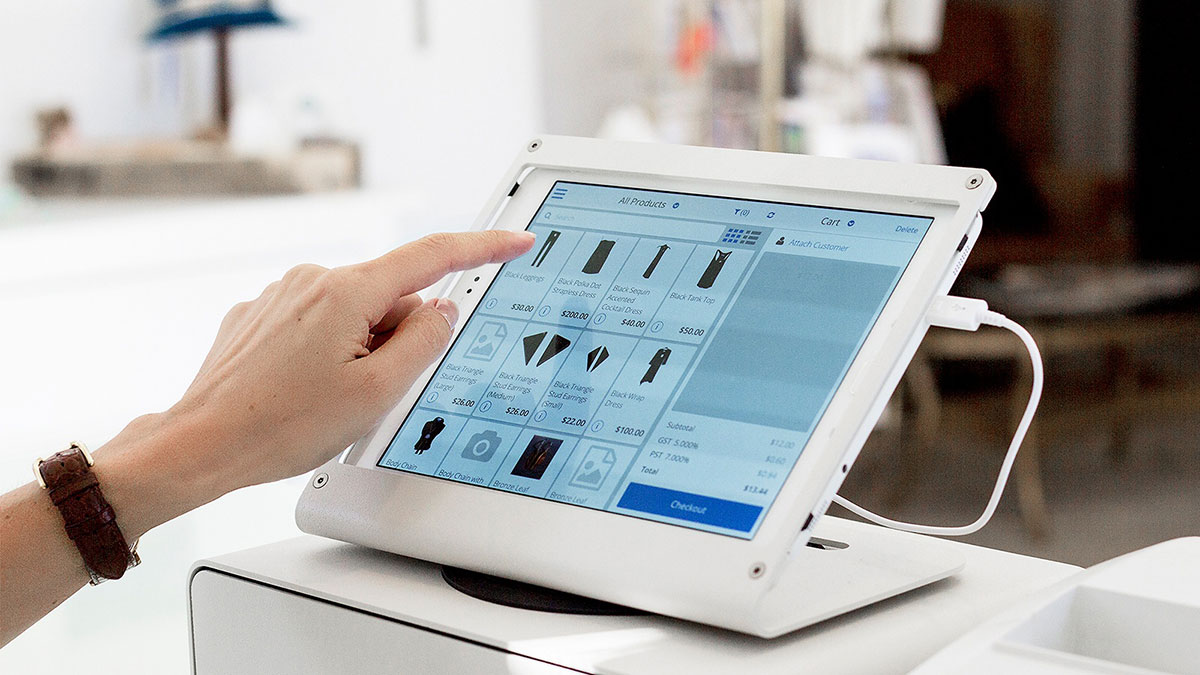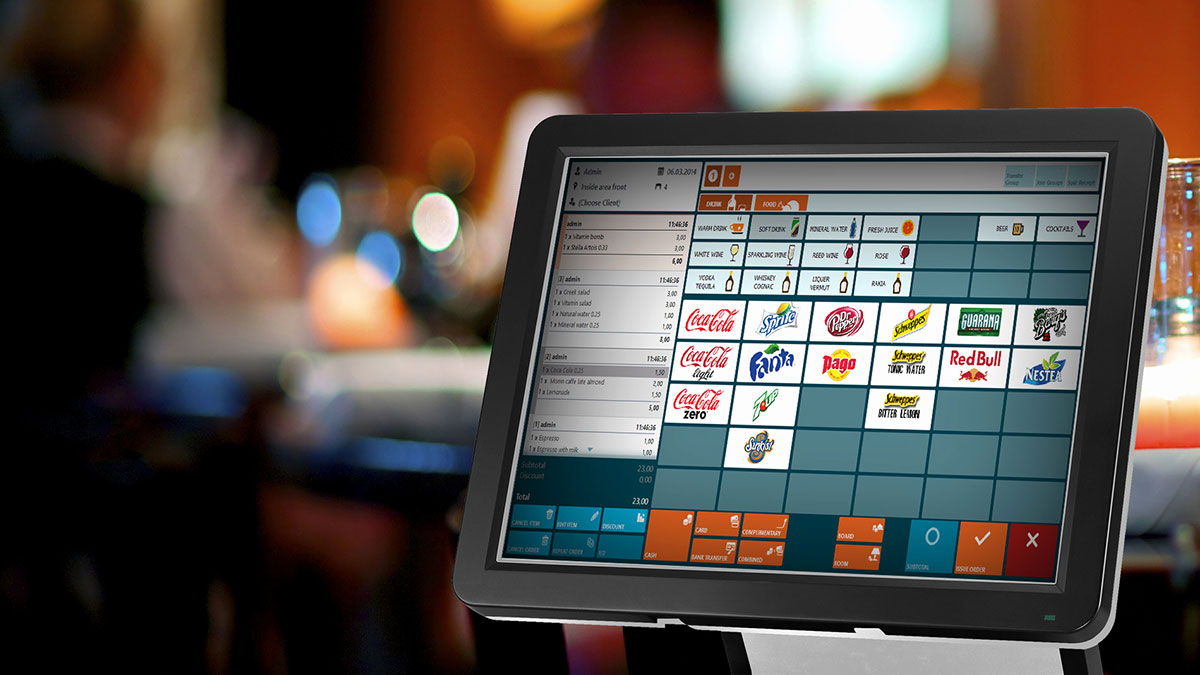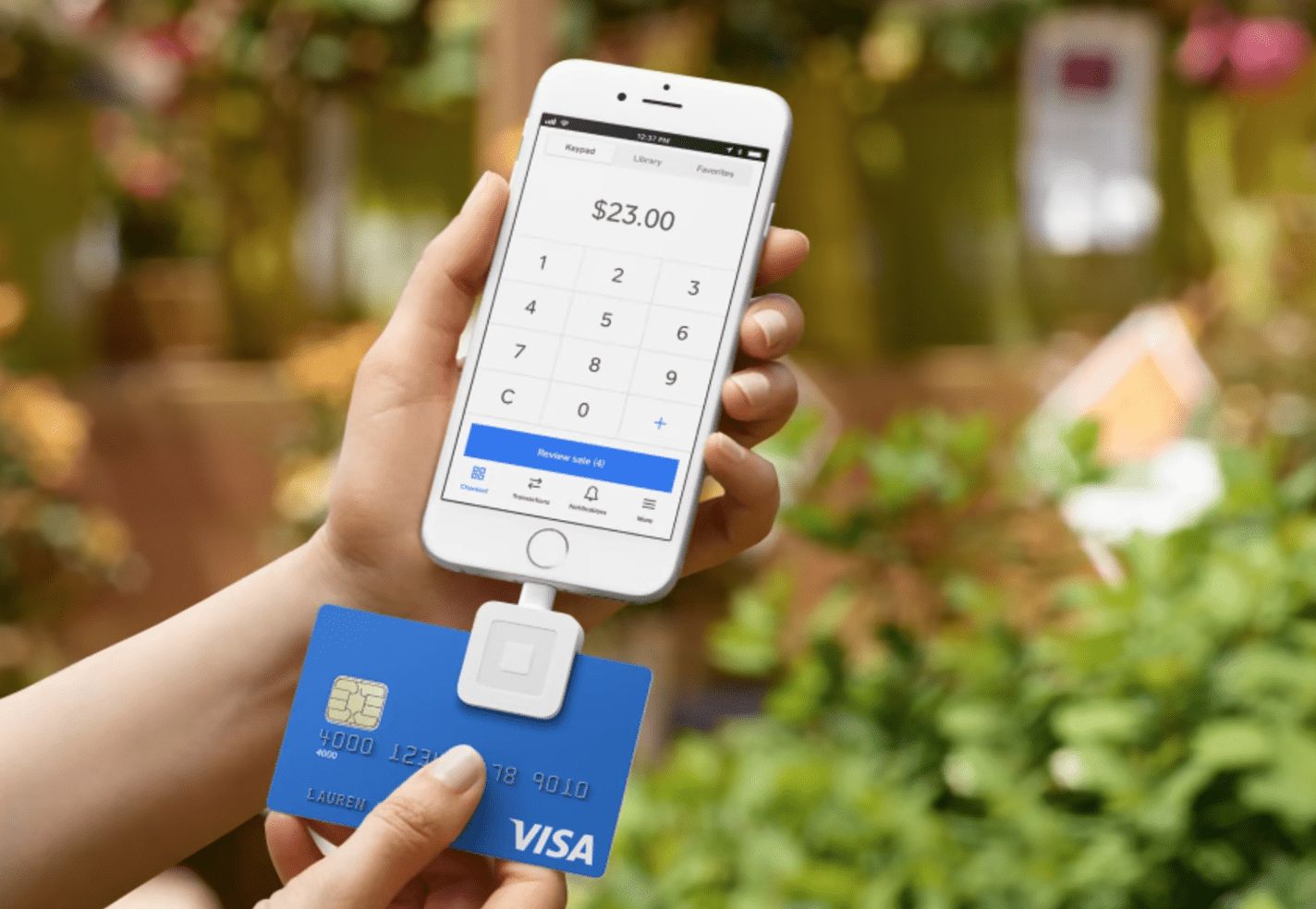Introduction
Welcome to the world of retail, where businesses strive to provide exceptional products and services to customers. To ensure seamless transactions and efficient operations, retailers rely on various technologies. Among these technologies, a Point of Sale (POS) system is a crucial tool for any retail store.
A POS system for retail is a combination of hardware and software that facilitates the processing of sales transactions. It serves as the central hub for managing all aspects of the retail operation, from inventory management and employee tracking to customer relationship management and sales reporting. In essence, a POS system acts as the nerve center of a retail business, providing valuable insights while streamlining daily operations.
Over the years, the retail industry has witnessed a significant shift from traditional cash registers to advanced POS systems. These systems have revolutionized the way retail transactions are conducted and have become essential for the success of modern businesses.
In this article, we will explore the definition of a POS system for retail, the benefits it offers, the key features to look for, the different types available, how to choose the right one for your store, and common misconceptions surrounding POS systems. By the end, you will have a better understanding of why a POS system is a must-have tool for your retail business.
So, whether you’re a small boutique shop owner or a large-scale retail chain, read on to discover the power of a POS system and how it can revolutionize the way you manage and grow your retail business.
Definition of POS System for Retail
A Point of Sale (POS) system for retail refers to the combination of hardware and software that enables retailers to manage and process sales transactions efficiently. It serves as a central hub and acts as the primary interface between customers, inventory, and sales data.
At its core, a POS system is designed to simplify and automate various aspects of retail operations, such as inventory management, sales tracking, and customer management. It replaces traditional cash registers with computer-based systems that offer advanced features and capabilities to streamline the entire sales process.
The hardware components of a POS system for retail typically include a central processing unit (CPU), a monitor or touch screen display, a barcode scanner, a cash drawer, and a receipt printer. These components work together to facilitate smooth and accurate transactions.
The software component of a POS system is where the magic happens. It includes a user-friendly interface that allows retailers to add products to the system, track inventory, process transactions, generate sales reports, and perform other essential functions. Additionally, the software often integrates with other systems, such as customer relationship management (CRM) software and accounting software, to provide a comprehensive retail management solution.
One of the key features of a POS system for retail is the ability to capture and store vital sales data in real time. This data includes information about items sold, transaction amounts, customer details, and more. By having this information readily available, retailers can gain valuable insights into sales trends, customer preferences, and overall performance, allowing them to make informed business decisions.
Moreover, a POS system for retail offers various payment options, including cash, credit cards, mobile payments, and gift cards. This versatility enables retailers to cater to a wide range of customer preferences and ensures a smooth and convenient checkout experience.
In summary, a POS system for retail is an integrated hardware and software solution that helps retailers manage sales transactions, track inventory, and gain valuable insights into their business performance. By leveraging the power of technology, retailers can enhance efficiency, improve customer service, and ultimately drive growth in their retail business.
Benefits of Using a POS System for Retail
Implementing a POS system for your retail business can bring a multitude of benefits that go beyond simply processing sales transactions. Here, we will explore some of the key advantages of using a POS system:
- Streamlined Sales Process: A POS system simplifies the sales process by automating tasks like inventory management, pricing updates, and barcode scanning. This streamlines the checkout experience for customers, reducing waiting times and improving overall customer satisfaction.
- Accurate Inventory Management: With a POS system, you can track your inventory in real time. Every sale made updates the inventory levels, giving you accurate and up-to-date information. This helps prevent overstocking or running out of popular items, leading to improved inventory management and reduced costs.
- Efficient Reporting and Analytics: A POS system provides robust reporting and analytics features, allowing you to gain valuable insights into your business. You can generate sales reports, analyze trends, identify top-selling products, and track the performance of your employees. These insights enable you to make data-driven decisions and optimize your business operations.
- Enhanced Customer Relationship Management: A POS system typically includes CRM capabilities, enabling you to store customer information, purchase history, and contact details. This data empowers you to personalize customer interactions, offer targeted promotions, and build strong relationships with your customers.
- Improved Accuracy and Reduction in Errors: Manual entry of sales data can lead to human errors and discrepancies. By automating the process with a POS system, you minimize the risk of mistakes, ensuring accurate record-keeping and reducing the need for manual reconciliations.
- Efficient Employee Management: POS systems can simplify employee management by tracking their sales activities, work hours, and commissions. This helps increase transparency and accountability while optimizing staffing and performance.
- Integration with Other Systems: Many POS systems can integrate with other business tools, such as accounting software, CRM systems, and e-commerce platforms. This seamless integration streamlines operations and data management across different facets of your business.
- Improved Security: POS systems offer advanced security features, including encryption of customer payment data and employee access controls. This helps protect sensitive information and reduces vulnerability to fraud or data breaches.
By leveraging these benefits, a POS system can revolutionize your retail business, enhancing efficiency, accuracy, customer satisfaction, and overall profitability. It empowers you to make data-driven decisions, streamline operations, and deliver exceptional customer experiences.
Key Features of a POS System for Retail
A POS system for retail comes equipped with a range of features designed to enhance the efficiency and effectiveness of your business operations. Here are some key features to look for when choosing a POS system:
- Inventory Management: A robust POS system enables you to track and manage your inventory in real time. It should provide you with the ability to add and update products, track stock levels, set up automatic reordering, and generate reports on product performance.
- Sales Processing: The heart of a POS system lies in its sales processing capabilities. Look for features like barcode scanning, multiple payment options (cash, credit cards, mobile payments), discounts and promotions management, and the ability to split or merge transactions.
- Reporting and Analytics: A good POS system should offer comprehensive reporting and analytics features. Look for the ability to generate sales reports, track sales trends, analyze top-selling items, and gain insights into customer behavior. Customizable reports and visual data representation can also be beneficial.
- Customer Relationship Management (CRM): POS systems that include CRM functionality allow you to easily manage customer information, track purchase history, and create customer profiles. Look for features like loyalty programs, customer segmentation, and tools for personalized marketing campaigns.
- Employee Management: Look for features that enable you to manage employee activities, such as tracking sales performance, monitoring work hours, assigning different access levels, and managing commissions or incentives.
- Integration Capabilities: Consider a POS system that can integrate with other essential business tools. Integration with accounting software, e-commerce platforms, and other systems can significantly streamline your operations and simplify data management.
- User-Friendly Interface: Ease of use is crucial for both you and your staff. Look for a POS system with an intuitive and user-friendly interface that requires minimal training and ensures quick and efficient operations.
- Security Features: As security is paramount in retail operations, ensure that the POS system you choose includes features like data encryption, secure customer payment processing, and user access controls to protect sensitive information and prevent unauthorized access.
These key features will help you optimize your retail operations, streamline processes, gain valuable insights, and improve customer experiences. Consider your specific business needs and choose a POS system that offers the right combination of features to support your growth and success.
Different Types of POS Systems for Retail
When it comes to choosing a POS system for your retail business, it’s important to understand the different types available in the market. Each type offers unique features and functionalities that cater to specific business needs. Here are some common types of POS systems for retail:
- Cloud-Based POS Systems: Cloud-based POS systems, also known as Software-as-a-Service (SaaS) POS systems, are becoming increasingly popular. These systems operate entirely online, allowing users to access their data and manage their business from anywhere with an internet connection. Cloud-based POS systems offer real-time data syncing, automatic software updates, and the ability to integrate with other cloud-based applications.
- On-Premise POS Systems: On-premise POS systems are installed directly on your in-store servers or computers. These systems offer a high level of control and customization as they are not reliant on internet connectivity. However, they require IT expertise for maintenance and updates, and the initial setup costs can be higher.
- Mobile POS Systems: Mobile POS systems are designed for retail businesses that require flexibility and mobility. These systems utilize tablets or smartphones as the primary point of sale device, allowing staff to complete transactions on the shop floor. Mobile POS systems offer convenience, portability, and can be an ideal solution for pop-up stores, food trucks, or businesses with limited counter space.
- Self-Service Kiosk POS Systems: Self-service kiosk POS systems are increasingly being used in various retail environments. These systems allow customers to browse products, make selections, and complete their purchases without the need for assistance from staff. Self-service kiosks can reduce waiting times, empower customers to control their shopping experience, and help retailers optimize staff utilization.
- Multi-Store POS Systems: Multi-store POS systems are designed for retail businesses with multiple locations. These systems provide centralized management of inventory, pricing, and reporting across all stores. They enable businesses to have a comprehensive view of sales data, streamline operations, and ensure consistency across different locations.
- Specialized POS Systems: Depending on your retail niche, you may find specialized POS systems tailored to specific industries. For example, there are POS systems designed specifically for restaurants, fashion boutiques, or electronic stores. These specialized systems often come with industry-specific features, such as table management and ingredient tracking for restaurants or size and color matrix for fashion retailers.
- Integrated POS Systems: Integrated POS systems combine the functionality of a traditional POS with additional business tools. They offer features like e-commerce integration, accounting integration, customer loyalty programs, and inventory management. Integrated POS systems provide a seamless flow of information across different aspects of your business, improving efficiency and reducing manual data entry.
Consider your unique business requirements, budget, and long-term objectives when choosing a POS system. Evaluate the pros and cons of each type to find the one that aligns best with your retail operation and can support your growth and success.
How to Choose the Right POS System for Your Retail Store
Choosing the right POS system for your retail store is crucial to ensuring smooth operations, improving efficiency, and delivering exceptional customer experiences. Here are some key factors to consider when selecting a POS system:
- Evaluate Your Business Needs: Begin by assessing your specific business requirements. Consider factors such as the size of your store, the number of employees, your industry, and the specific features you need, such as inventory management or customer tracking. Understanding your needs will help you narrow down your options.
- Consider Scalability: Think about your long-term business growth goals. Choose a POS system that can scale with your business and accommodate future expansion or changes. Scalability ensures that your system can handle increased transaction volumes, additional stores, or the integration of new technologies.
- Look for User-Friendly Interface: Your POS system should be intuitive and easy to use for both you and your staff. Look for a system with a user-friendly interface that requires minimal training. A complex or cumbersome system can lead to productivity issues and user frustrations.
- Ensure Integration Capabilities: Consider the existing systems and tools you use in your business, such as accounting software, e-commerce platforms, or CRM systems. Choose a POS system that can integrate seamlessly with these tools, allowing for streamlined operations and data management.
- Assess Hardware and Software Requirements: Determine the hardware and software components required for your POS system. Consider factors such as the size of the cash register, type of barcode scanner, and compatibility with your existing devices. Assess the system requirements and ensure they are easily achievable.
- Consider Security Measures: Security is crucial in handling customer payment data and protecting your business. Look for a POS system that offers advanced security features, such as data encryption, secure payment processing, and user access controls. Ensure the system complies with industry standards and regulations.
- Research Customer Support and Training: Explore the customer support and training options offered by the POS system provider. Ensure they provide prompt and reliable support in case of any issues or technical difficulties. Look for training resources, user manuals, and tutorials to help you and your staff get up to speed quickly.
- Consider Costs and Pricing: Assess the costs involved in adopting a POS system, including upfront hardware costs, software licensing fees, and ongoing maintenance charges. Compare pricing plans and determine which system provides the best value for your budget. Consider factors like monthly subscription fees, transaction fees, and any additional charges for added features.
- Read Reviews and Seek Recommendations: Do thorough research, read customer reviews, and seek recommendations from other retailers in your industry. Learn from the experiences of others to gain insight into the pros and cons of different POS systems. Consider factors like reliability, customer satisfaction, and the reputation of the provider.
By considering these factors and conducting thorough research, you can make an informed decision and choose the right POS system that meets the specific needs of your retail store. Remember, a well-chosen POS system will not only streamline operations but also contribute to the growth and success of your business.
Common Misconceptions about POS Systems for Retail
When it comes to POS systems for retail, there are several misconceptions that can lead to misunderstandings or hesitation in adopting this technology. Let’s address some of the common misconceptions:
- POS systems are only for large retailers: One common misconception is that POS systems are only suitable for large retail chains. In reality, POS systems are beneficial for businesses of all sizes, from small boutiques to local shops. They offer features that can streamline operations, improve efficiency, and provide valuable insights, regardless of the size of your store.
- POS systems are too expensive: Another misconception is that POS systems are expensive and not cost-effective for small businesses. While it’s true that some advanced systems come with higher price tags, there are affordable options available. Many POS systems offer flexible pricing plans, allowing you to choose the features that best fit your budget and business needs.
- POS systems are complex and hard to use: Some retailers worry that adopting a POS system means dealing with complicated technology and extensive training. However, modern POS systems are designed to be user-friendly and intuitive. They come with user-friendly interfaces and require minimal training to get started. Providers often offer comprehensive support and training resources to assist users in understanding and utilizing the system effectively.
- POS systems are only for processing sales: A common misconception is that POS systems are only meant for processing sales transactions. While this is an essential function, modern POS systems offer much more. They can handle inventory management, generate detailed reports, track customer data, integrate with other systems, and provide valuable business insights. They serve as comprehensive retail management tools.
- POS systems are not secure: Security is a concern for retailers when considering a POS system. However, reputable POS systems prioritize security and offer features such as encryption of customer payment data and user access controls. They comply with industry regulations to ensure the safety of sensitive information.
- POS systems are one-size-fits-all: Some retailers assume that all POS systems offer the same features and functionalities. However, there are various types of POS systems available, each with different capabilities and customization options. It’s important to assess your specific business needs and choose a system that aligns with your requirements.
- POS systems require constant internet connectivity: While some POS systems rely on internet connectivity, not all of them are entirely dependent on it. Certain systems offer offline mode capabilities, allowing you to continue processing sales even without an internet connection. Data is synced automatically once connectivity is restored.
By understanding and dispelling these common misconceptions, retailers can make informed decisions and fully leverage the benefits that a POS system brings to their business. POS systems are flexible, adaptable, and scalable tools that can significantly enhance retail operations, regardless of the size or type of your store.
Conclusion
In today’s competitive retail landscape, implementing a POS system is no longer a luxury but a necessity for businesses. A POS system offers numerous benefits, including streamlined sales processes, accurate inventory management, efficient reporting and analytics, enhanced customer relationship management, and improved accuracy and security. With different types of POS systems available, including cloud-based, on-premise, mobile, self-service kiosk, multi-store, specialized, and integrated, retailers have the flexibility to choose the system that best suits their unique needs and requirements.
When choosing a POS system, retailers should consider factors such as scalability, user-friendliness, integration capabilities, hardware and software requirements, security measures, customer support and training options, and pricing. It’s essential to dispel common misconceptions, such as POS systems being only for large retailers, too expensive, complex to use, or lacking in security. The right POS system can benefit businesses of all sizes and industries, offering tailored features to streamline operations and improve customer experiences.
In conclusion,
POS systems have transformed the retail industry, providing businesses with a powerful tool to efficiently manage transactions, track inventory, analyze sales data, and build stronger customer relationships. By choosing the right POS system and leveraging its features and capabilities, retailers can gain a competitive edge, improve operational efficiency, enhance customer satisfaction, and drive business growth.







